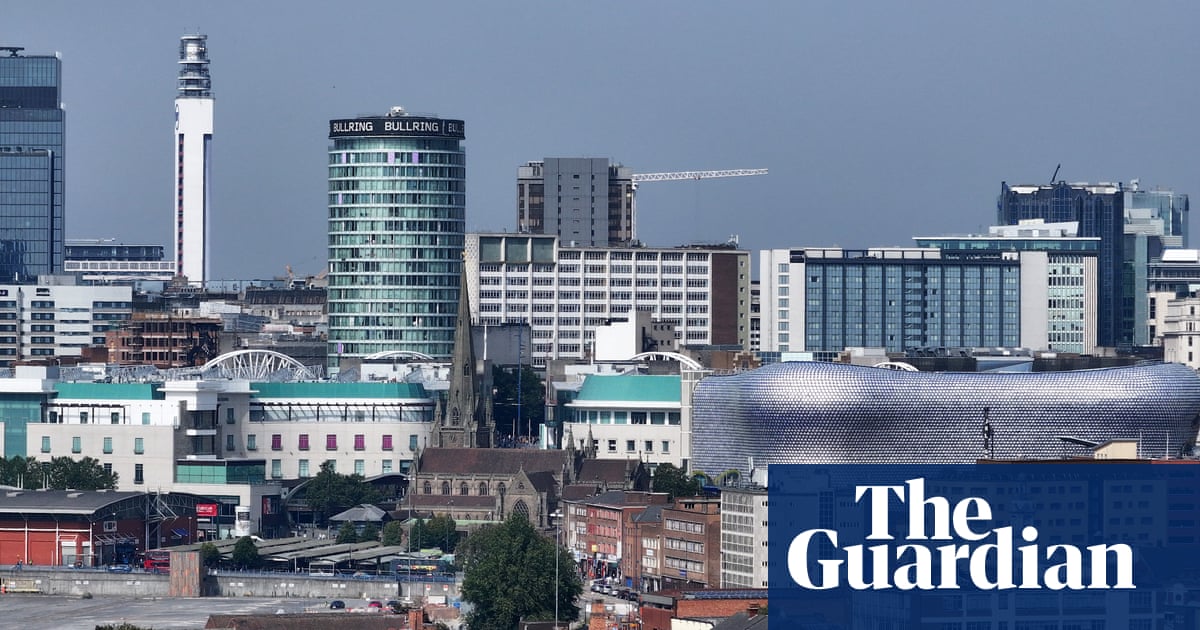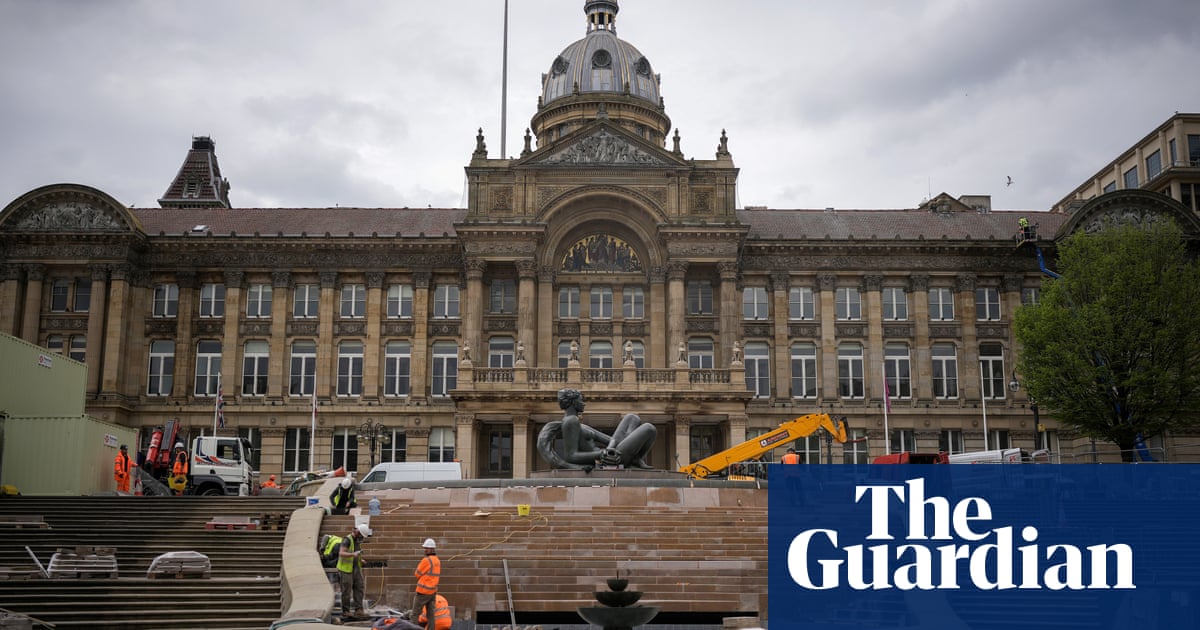
Commissioners are to be sent to run Birmingham city council as part of a series of drastic emergency measures announced by ministers for the UK’s largest local authority, which has in effect declared itself bankrupt.
The communities secretary, Michael Gove, said commissioners would be parachuted into the stricken council to preside over decision-making in the coming weeks, with the selling of authority-owned assets, job cuts and a rise in council tax all anticipated.
The council issued a section 114 notice two weeks ago, stating it did not have the resources to balance its budget because of a series of problems, including a spiralling equal pay bill and IT failures.
Addressing the House of Commons on Tuesday, Gove announced commissioners would be given extensive powers to take over the council’s governance, financial decision-making and senior appointments, and a local inquiry would be launched to determine the source of the council’s economic woes.
“I do not take these decisions lightly but it’s imperative in order to protect the interests of the residents and taxpayers of Birmingham,” he said.
“Poor leadership, weak governance, woeful mismanagement of employee relations and ineffective service delivery have harmed the city. The one constant is there has been a failure to deliver for residents who deserve better.”
Labour’s deputy leader, Angela Rayner, said cuts to council budgets over the past decade, including £1bn of cuts in Birmingham, had “pushed local government to the brink”.
“Birmingham has experienced some of the most severe cuts of the last 13 years,” she said. “Local authorities across the country are struggling and [Gove] can’t seriously say it is all their own fault.”
The Labour leader of Birmingham city council, John Cotton, welcomed the government intervention and said there was “a lack of senior capacity” at the council to tackle its problems and get the “budget back on track”.
The council, which serves more than 1 million people, has a budget shortfall of £87m for the current financial year, projected to rise to £165m in 2024-25.
It is facing a £760m bill for equal pay claims, on top of £1bn it has already paid out in equal pay compensation over the past decade, and major issues with a new IT system are expected to cost £100m to fix.
Initial details of a financial recovery plan for the city, published on Tuesday, said it would be asking for “exceptional financial support” from the government, and planned to sell some of its assets.
“Our work to address the situation must be urgent, will involve hard choices about what we deliver and how we operate, and will result in a smaller organisation,” a report from the council’s chief executive, Deborah Cadman, stated.
Unions said they would push back against any proposed redundancies. Unite’s general secretary, Sharon Graham, said: “If there is any attempt to cut the jobs, pay or conditions of our members, Unite will fight those proposals using every resource available to the union.
“Our members did not create the crisis and if unelected, faceless bureaucrats think that we will allow the livelihoods of workers to be axed in order to pay for this mess, then they need a rapid reality check.”
The commissioners will be led by the local government expert Max Caller, who has previously been drafted into similar interventions in Northamptonshire, Liverpool and Slough.
Gove said the commissioners would work with the council to agree on an improvement plan within six months, while the inquiry would address “more fundamental questions around how Birmingham got to this position”.
Asked in parliament whether the commissioners’ powers would extend to decisions to raise council tax and sell assets, Gove said: “It has sadly been the case in the past with local authorities that have failed, like Croydon and like Slough, that we have needed both to increase council tax in certain circumstances and to dispose of assets.”
Jonathan Carr-West, the chief executive of the Local Government Information Unit, said “the cure can be pretty brutal” when commissioners are brought in.
“Unconstrained by the need to seek re-election, commissioners can pick from a menu of hard choices,” he said. “Assets can only be sold once, lost capacity can take years to rebuild and service cuts can have long-term impacts. Today’s news is no surprise. But it indicates a lot of pain to come.”
Andy Street, the mayor of the West Midlands, described the situation as “an avoidable tragedy”, and said the issues “run far deeper than just equal pay”.
“What is mission critical now is for the commissioners to work with the council to protect services for residents and businesses across the city,” he said.












